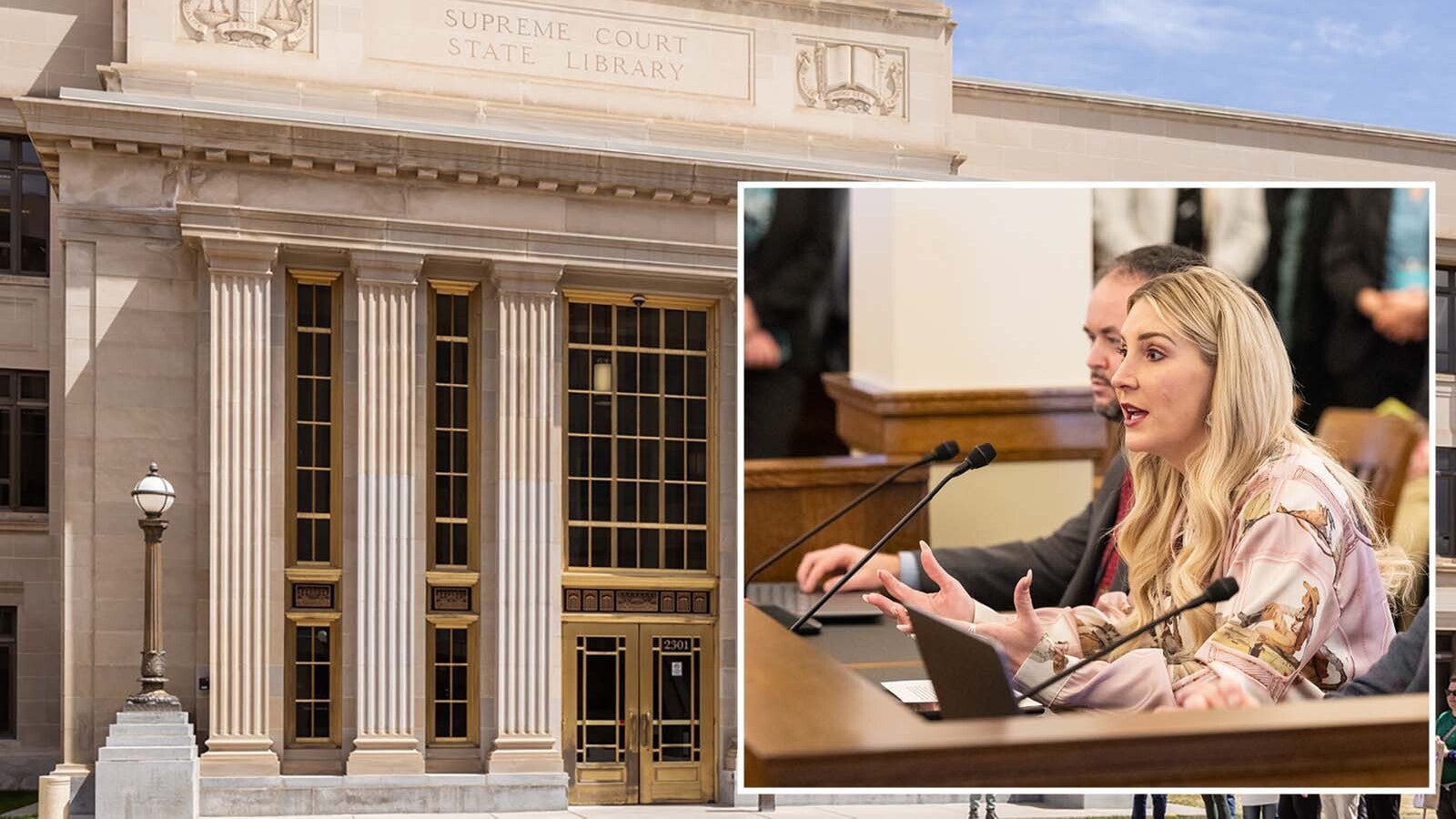It’s a popular sentiment in Wyoming to speak against overregulation. Not necessarily in Teton County, however, where county commissioners there are to pay an outside lobbyist about $108,000 a year to help it fight issues like a potential effort by the Legislature’s Regulatory Reduction Task Force to deregulate local affordable housing ordinances in Wyoming.
Over the past year, some members of the task force have floated ideas for regulating affordable housing at a state level and removing local ordinances, which in Teton County play a significant role.
Some have argued that the local affordable housing ordinances in Teton County are burdensome on private developers that seek to provide these same types of housing.
Teton County Commissioner Mark Newcomb told Cowboy State Daily that the county should get final say over issues such as how to best manage its local workforce housing shortages and what causes them. He believes that if current practices can be protected by a lobbyist backed by public money, it’s “money well spent.”
“There’s a sense among the board that some of the things that we’ve heard from that Regulatory Task Force is that they would be adding regulation in Cheyenne to basically preempt counties statewide from doing things locally that need to be done,” he said.
State Sen. John Kolb, R-Rock Springs, a member of the task force who has questioned the constitutionality of Teton County’s affordable housing practices, said he isn’t surprised or bothered that Teton County is pursuing this action.
He finds Teton County pursuing a lobbyist with public money to further its agenda “ironic” and believes the county has caused many of its own problems.
“They’re trying to restrict housing and trying to control it,” Kolb said. “At a certain point there’s consequences for doing that, and it may force state regulation.”
Commissioner Chairman Luther Propst, however, told Cowboy State Daily that the main inspiration for hiring the lobbyist is to better represent Teton County at the state Capitol in Cheyenne about seven hours away.
“It’s important to have our values represented down there,” he said.
What Will They Do?
The county commission hammered out some of the final details Tuesday for a contract it plans to offer Cheyenne resident Nick Agopian to be its lobbyist. Newcomb expects the commission to finalize and approve the contract at its next meeting in one week.
Agopian’s work will cover much more than affordable housing legislation, however, spanning into the realms of property tax issues, raising new revenue for the county, better harnessing its tourism economy, and advocating for and against legislation the county views as beneficial or harmful to it.
“If that legislation appears to the board to negatively impact Teton County, then we think having a lobbyist in Cheyenne is most effective, because it’s pretty hard for a commissioner to be down there often enough or long enough to stick with the process and monitor the legislation,” Newcomb said.
Newcomb said the county also wants to work with landowners who would like to develop property for both community and personal benefit, which would require a new law.
Unique Problems
In recent months, Teton County has taken center stage for some important issues before state boards. With unique problems and a different political makeup than the rest of the state, Teton County isn’t always in the strongest position to get its way.
Propst mentioned state trust land issues such as the ongoing Kelly Parcel debate and the approval of a set of geodesic domes in 2022 built as examples of where he believes Teton County could have better represented itself had its residents personally attended meetings in Cheyenne.
“I see this opportunity to have additional power on our team supporting us and getting direction from us as very unique, and I really want to get it right because I think the stakes are high in terms of our credibility and how we engage with the state,” Teton County Commissioner Natalia Macker said at a December commission meeting.
Kolb doesn’t believe the hiring of a lobbyist will be a game-changer for Teton County on affordable housing legislation.
“I don’t think a lobbyist is going to change the facts,” he said. “Everybody takes a certain position because of what they don’t know.”
Teton County Commissioner Wes Gardner also cautioned at the December meeting that there have been some issues his county has internally supported, but strategically chose to stay silent on, such as high-occupancy vehicle lanes.
He expressed concern that Teton County won’t be able to be so calculated if commissioners have to give directives to their lobbyist in an open meeting.
“There’s been certain issues where we’ve been strategically absent from and let other counties take the lead,” Gardner said. “How are we able to do that if we’re presenting our strategy in open session?”
How Much?
The commissioners are planning to pay Agopian $9,000 a month for his services. At the December meeting, commissioner Greg Epstein questioned whether the lobbyist should be paid this rate for the full year, as the bulk of his work would take place during the one- to two-month-long legislative sessions.
County Commissioner Administrator Alyssa Watkins responded that Agopian refused to be paid a lower amount for certain parts of the year under a year-long contract.
Some of the commissioners, including Newcomb, have expressed trepidation about this arrangement, but he said Agopian also will pursue federal and state grant opportunities for Teton County throughout the year that will potentially help it ease the tax burden on its residents.
“It’s a lot of money to spend I think, but we’ll see what comes of it for a year,” Newcomb said.
Propst also said at the meeting that the contract is worth the price when considering the money Agopian could secure for Teton County and his efforts to protect it “the variety of reforms to property tax that could leave us in a real bad space.”
He specifically mentioned an ongoing property tax ballot initiative that would slash tax assessments by 50% across Wyoming.
“Yeah, it’s (contract) a lot but it would be a problem if this initiative gets on the ballot and passes,” Propst said. “It would have a significant impact on our property taxes.”
Newcomb also brought the scenario if or when grizzly bears are removed from the Endangered Species Act and return to state regulation as a situation where Teton County’s interests may greatly differ from the rest of the state on how to manage the species.
The commissioners have yet to decide where the taxpayer funding for the lobbyist will come from.
Precedent
The Wyoming County Commissioners Association is the typical lobbying group for counties around the state.
Jerimiah Rieman, executive director of the organization, said he understands why Teton County is doing what it’s doing and that it can be difficult for his group to advocate for a single county on specific issues.
Although he said some counties have pursued lobbyists for specific issues in the past, he has never seen a county hire an outside lobbyist for a wide range of issues in Wyoming before.
The town of Jackson also has a paid lobbyist in former state legislator Andy Schwartz.
Leo Wolfson can be reached at leo@cowboystatedaily.com.





